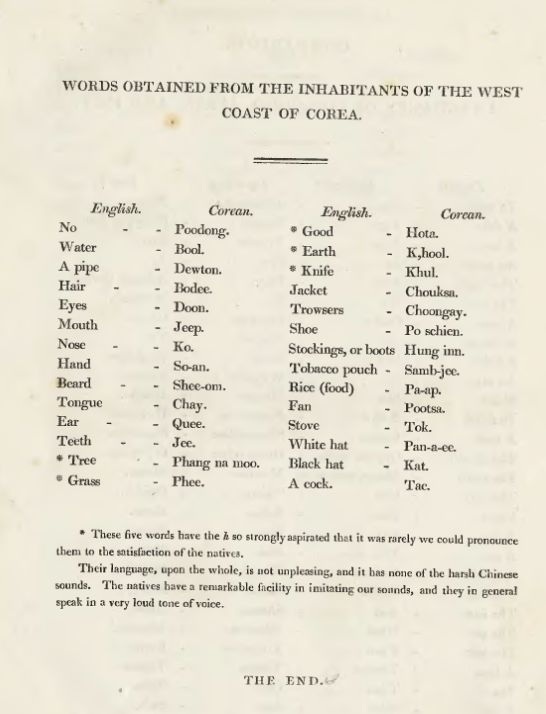It seems that in September of 1816, a shipload of Scots and Englishmen visited Korea. Aboard was the “Ambassador Extraordinary from the British King to the Emperor of China, and a diplomatic entourage including secretaries, naturalists, surgeons, Marines, and an artist” — It was all under command of a Captain Basil Hall; a journey of official goodwill to the Orient, it was.
Captain Hall kept diaries and published a book based on them (“A Voyage of Discovery to the Western Coast of Corea and the Great Loo-Choo Island in the Japan Sea“) upon return home in 1818. He reported the Koreans to be inhospitable, constantly encouraging the White visitors to leave. Captain Hall speculated that the locals’ paranoia may have been due to a fear of the government. I learned all this from a post at Gusts of Popular Feeling.
Interestingly, at the back of Captain Hall’s book there is included what must be the first Korean-English ‘dictionary’:
I may know about half of these words in Korean. Some of them are noticeably altered from the ways I know them, though. For example: water is “mool”, not “bool”. Eye is “noon”, not “boon”. Maybe they were talking to a Korean with a stuffy nose?
The one that confuses me the most is the supposed translation of “No”, though. Captain Hall has it as “Poodong”, which is not right at all. Where could that come from?

